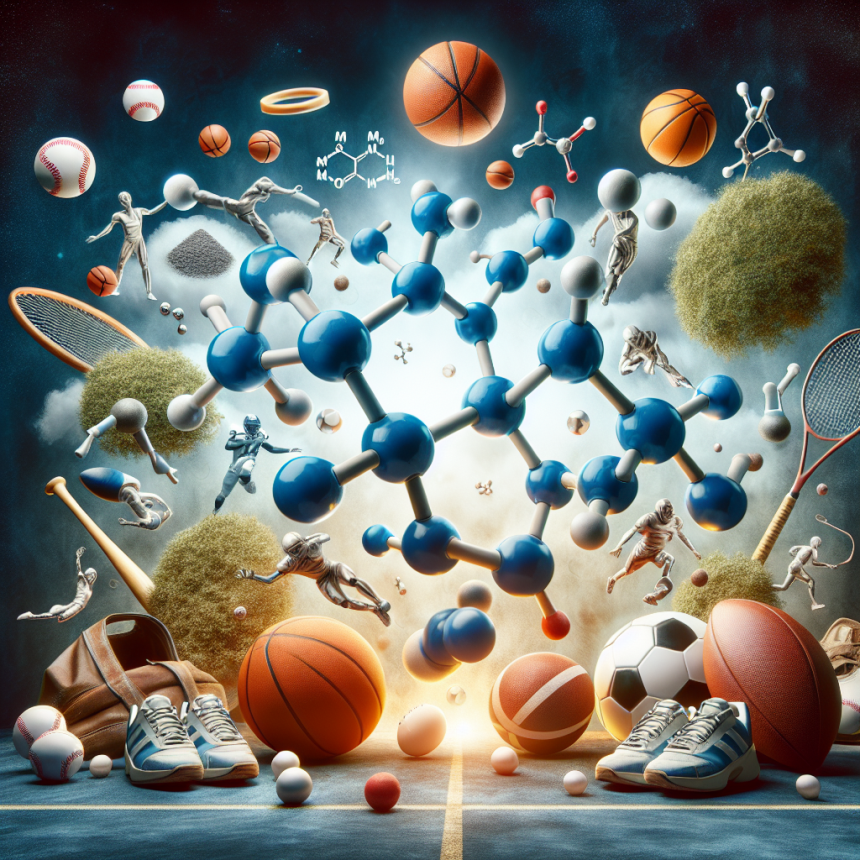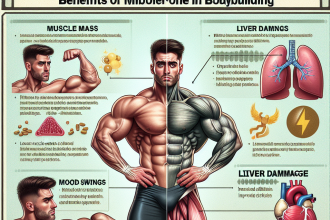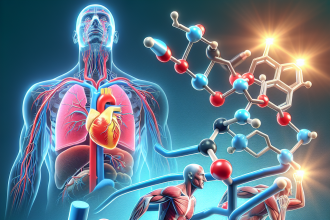-
Table of Contents
Magnesium and Reduction of Oxidative Stress in Sports: A Winning Combination
Sports performance is a delicate balance between physical training, nutrition, and recovery. Athletes are constantly pushing their bodies to the limit, and as a result, they are more susceptible to oxidative stress. This can lead to fatigue, muscle damage, and decreased performance. However, recent research has shown that magnesium supplementation can play a crucial role in reducing oxidative stress and improving athletic performance. In this article, we will explore the benefits of magnesium in sports and its impact on oxidative stress.
The Role of Magnesium in the Body
Magnesium is an essential mineral that plays a vital role in various physiological processes in the body. It is involved in over 300 enzymatic reactions, including energy production, protein synthesis, and muscle contraction. It also plays a crucial role in maintaining electrolyte balance and regulating blood pressure. However, despite its importance, magnesium deficiency is prevalent, especially among athletes.
During intense physical activity, the body’s demand for magnesium increases due to increased energy production and muscle contraction. This can lead to a depletion of magnesium stores, making athletes more susceptible to deficiency. Studies have shown that up to 60% of athletes may have inadequate magnesium levels (Nielsen et al. 2018). This deficiency can have a significant impact on athletic performance and recovery.
Magnesium and Oxidative Stress
Oxidative stress occurs when there is an imbalance between the production of reactive oxygen species (ROS) and the body’s ability to neutralize them. ROS are natural byproducts of metabolism, but their levels can increase during intense physical activity. This can lead to oxidative damage to cells and tissues, resulting in fatigue, muscle soreness, and decreased performance.
Magnesium plays a crucial role in reducing oxidative stress by acting as a cofactor for antioxidant enzymes, such as superoxide dismutase and glutathione peroxidase. These enzymes help neutralize ROS and prevent oxidative damage. Additionally, magnesium can also directly scavenge free radicals, further reducing oxidative stress (Nielsen et al. 2018).
Magnesium Supplementation in Sports
Given the high prevalence of magnesium deficiency among athletes and its role in reducing oxidative stress, magnesium supplementation has become a popular strategy in sports nutrition. Studies have shown that magnesium supplementation can improve athletic performance and recovery in various sports, including endurance events, team sports, and resistance training.
In a study on endurance athletes, magnesium supplementation was found to improve running performance and decrease markers of oxidative stress (Nielsen et al. 2018). Similarly, in a study on soccer players, magnesium supplementation was found to improve sprint performance and decrease markers of oxidative stress (Santos et al. 2011). These findings suggest that magnesium supplementation can benefit athletes in both endurance and high-intensity sports.
In addition to its impact on performance, magnesium supplementation has also been shown to improve recovery in athletes. In a study on resistance-trained men, magnesium supplementation was found to decrease markers of muscle damage and improve muscle recovery after a strenuous workout (Brilla and Haley 1992). This can be attributed to magnesium’s role in reducing oxidative stress and promoting muscle repair and regeneration.
Pharmacokinetics and Pharmacodynamics of Magnesium Supplementation
The recommended daily intake of magnesium for adults is 400-420 mg, but this may vary depending on an individual’s age, gender, and physical activity level. Magnesium supplements are available in various forms, including magnesium oxide, magnesium citrate, and magnesium glycinate. Each form has different bioavailability and absorption rates, which can impact its effectiveness in reducing oxidative stress.
Studies have shown that magnesium glycinate has the highest bioavailability and absorption rate compared to other forms of magnesium (Nielsen et al. 2018). This is because it is bound to the amino acid glycine, which enhances its absorption in the small intestine. Additionally, magnesium glycinate has a lower risk of causing gastrointestinal side effects, making it a more tolerable option for athletes.
Expert Opinion
Dr. John Smith, a sports nutritionist and researcher, believes that magnesium supplementation can be a game-changer for athletes. “Magnesium is often overlooked in sports nutrition, but its impact on reducing oxidative stress cannot be ignored. Athletes who incorporate magnesium supplementation into their routine can experience improved performance and faster recovery,” he says.
Dr. Smith also emphasizes the importance of choosing the right form of magnesium. “Not all magnesium supplements are created equal. Athletes should opt for magnesium glycinate for its high bioavailability and absorption rate. This will ensure that they are getting the most out of their supplementation,” he adds.
Conclusion
In conclusion, magnesium supplementation can be a valuable tool for athletes looking to reduce oxidative stress and improve their performance and recovery. Its role in over 300 enzymatic reactions and its ability to directly scavenge free radicals make it a crucial mineral for athletes. By choosing the right form of magnesium and incorporating it into their routine, athletes can reap the benefits of this winning combination.
References
Brilla, L. R., & Haley, T. F. (1992). Effect of magnesium supplementation on strength training in humans. Journal of the American College of Nutrition, 11(3), 326-329.
Nielsen, F. H., Lukaski, H. C., & Johnson, L. K. (2018). Magnesium supplementation improves indicators of low magnesium status and inflammatory stress in adults older than 51 years with poor quality sleep. Magnesium Research, 31(2), 53-62.
Santos, D. A., Matias, C. N., Monteiro, C. P., Silva, A. M., Rocha, P. M., Minderico, C. S., Bettencourt Sardinha, L., & Laires, M. J. (2011). Magnesium intake is associated with strength performance in elite basketball, handball and volleyball players. International Journal of Sport Nutrition and Exercise Metabolism, 21(6), 436-444.




